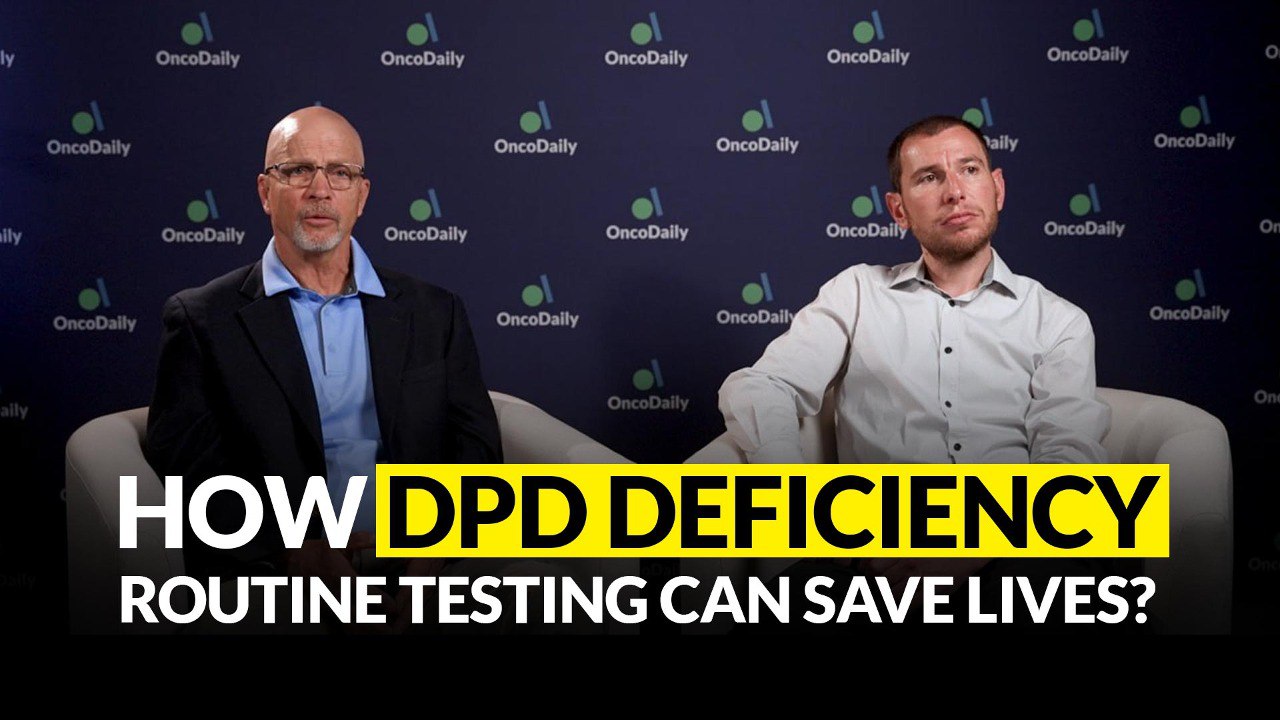The American Society of Clinical Oncology (ASCO) Annual Meeting is one of the largest and most prestigious conferences in the field of oncology. This year, the meeting took place from May 31 to June 4 in Chicago, Illinois. The event gathers oncologists, researchers, and healthcare professionals from around the world to discuss the latest advancements in cancer research, treatment, and patient care. Keynote sessions, research presentations, and panel discussions are typically part of the agenda, providing attendees with valuable insights into emerging trends and innovations in oncology.
This year, OncoDaily was at ASCO 2024 for the first time covering the meeting on-site. We had the pleasure of interviewing researchers who summarized the highlights of their work.
In this interview Ken Surprenant and Daniel Hertz, representing Advocates for Universal DPD/DPYD Testing (AUDT), discuss DPD deficiency in this short video. They will cover the importance of routine testing for DPD deficiency and its potential benefits for patients.
Ken Surprenant is the President of Advocates for Universal DPD/DPYD Testing (AUDT). He is a Former federal IT Program Manager. He is also a patient advocate.
Daniel L. Hertz is a Cancer Clinical Pharmacology and Biomarker Scientist/Researcher. Dr. Hertz’s dissertation research focused on discovery and validation of pharmacogenetic predictors of taxane-induced neuropathy.
Transcript of the ‘How DPD Deficiency Routine Testing Can Save Lives?’
Ken Serpanon: Hi, my name is Ken Serpanon. I’m the president of an advocacy group called the Advocates for Universal DPD-DPYD Testing. We’re here at ASCO because we want to raise awareness of this issue and seek to improve the standard of care, and I’m joined here with one of our medical advisors.
Daniel Hertz: Hi, I’m Daniel Hertz. I’m an associate professor at the University of Michigan College of Pharmacy and I’m a medical advisor for Advocates for Universal DPD-DPYD Testing.
Ken Serpanon: This is the second opportunity that we’ve had to participate in ASCO, and as Dr. Hertz and I were just discussing a few moments ago, there’s been a difference that is showing an improvement in terms of awareness of the issue that we’re raising.
In the past, DPD deficiency has been dismissed as too rare a risk for capecitabine chemotherapy at risk, because if they receive standard dosing and they have this deficiency, then their 1 in 20 people may experience severe toxic reaction delay treatments and then some of those patients will end up dying.
Our membership consists of people who have lost loved ones because they were treated without the screening and that they died after a single dose of the chemotherapy.
Daniel Hertz: So we want everyone, all medical oncologists, to test their patients for DPD deficiency before beginning capecitabine or fluoroacylate treatment. This is standard of care across Europe and is now recommended by the FDA.
We’re seeing a lot of momentum towards major cancer centers starting to test their patients like Dana-Farber, but we know that there are a lot of patients who are beginning treatment without being tested first and receiving potentially unsafe, overdosed treatment leading to toxicity and preventable deaths.
Ken Serpanon: And as we discover these new clinics that are, or I should say clinics that are new to introducing this testing, then we recognize them as leaders in the field.
And our hope is that as we learn more of these institutes that are being progressive in adopting this, we’re sharing that and re-identify them so that others may follow suit in hopes that, as Dr. Hertz point out, it does indeed become the standard of care in the U.S. so that we can avoid deaths that are unnecessary if we were to have the treatment, excuse me, if we were to have the test.
And it’s important to have the test because most patients with this deficiency are partially deficient and that they are asymptomatic.
In other words, if you were to look at me or look at Dr. Hertz or anybody else, I would challenge somebody to identify that they recognize this person has this deficiency.
If they have this deficiency, then they are unable to withstand the drug and there could be adverse reactions, as I mentioned before, that could lead to death. And it is really a horrible way to die because the person is essentially, the chemotherapy is destroying the internal organs.
And when it’s excreted, it damages the skin and it looks like it’s a burn victim. So we hope that next year, when we’re able to participate in ASCO, it’s more of, well, how do we find out about the testing? How do we implement the testing?
We hope that it’s more people that are coming to us. We’re on board with you. We’ve introduced this testing and we’ve documented that it is saving lives.
More videos and content from ASCO 2024 on OncoDaily.


